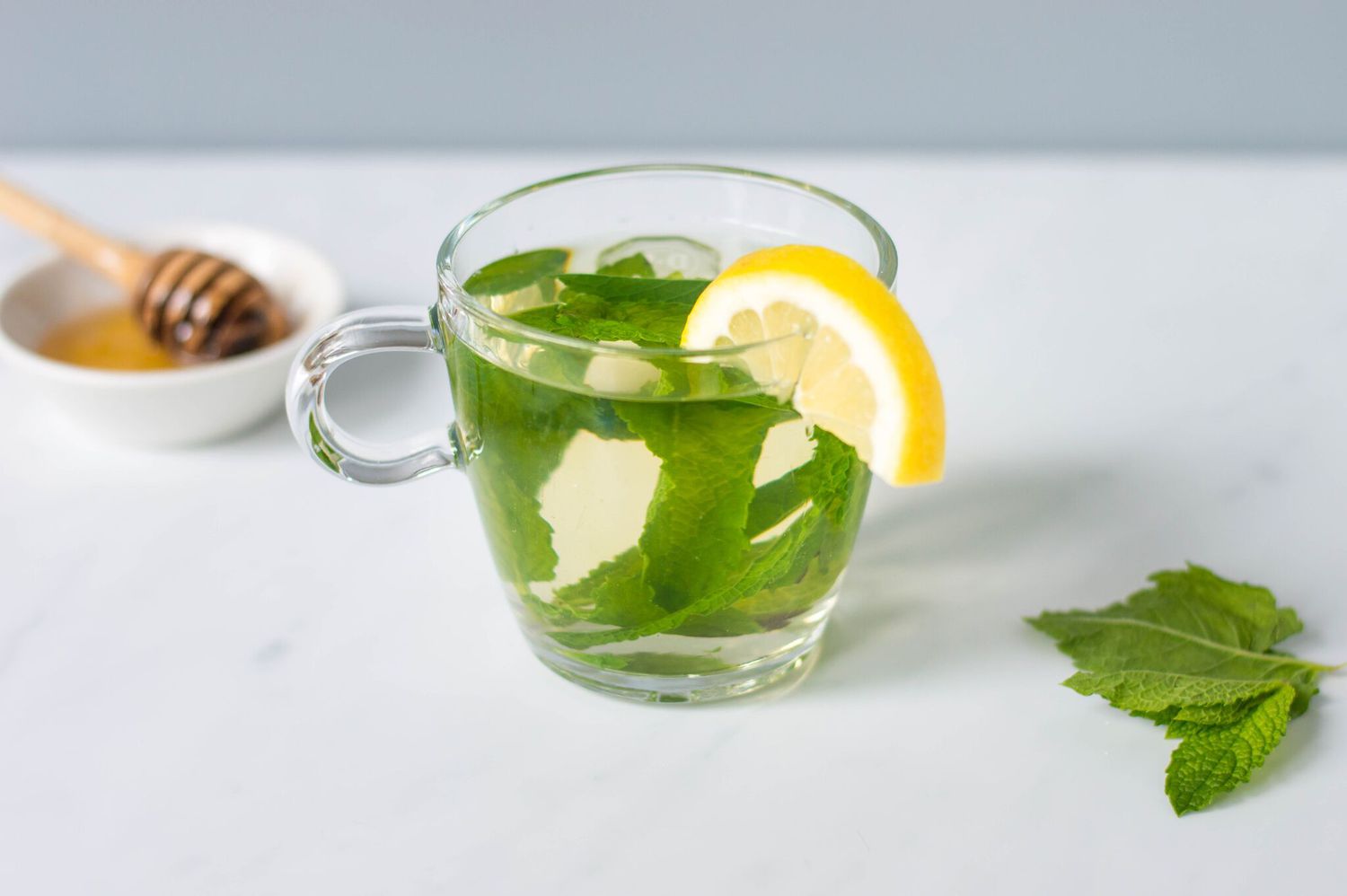
Benefits of Peppermint
WRITTEN BY MICHAEL EKE AND DR. SWATHI
What is peppermint?
In both Europe and North America, the herb peppermint grows naturally as a hybrid between winter mint and spearmint. There are health benefits of using peppermint leaves and essential oil. The flowering tops and leaves of the peppermint plant are used to make the essential oil known as peppermint oil. Peppermint oil is used as a fragrance in soaps and cosmetics and has been used for medicinal purposes for several thousand years in addition to being a flavoring agent in foods and beverages. There are several methods to consume peppermint leaves. Although fresh peppermint leaves are safe to consume uncooked, some people may not enjoy their strong flavor. To remove the bitterness, you can boil or simmer the leaves, or you can make peppermint tea.
The benefits of peppermint
Digestion
Peppermint is commonly used in people with digestive problems such as IBS (irritable bowel syndrome). Irritable bowel syndrome (IBS) is a group of symptoms that occur together, including repeated pain in your abdomen and changes in your bowel movements, which may be diarrhea, constipation, or both. When food is digested, a natural series of muscle contractions in the gut (called peristalsis) helps push food through your digestive system and urine to your bladder. The nerves that help in peristalsis of the stomach are far more sensitive in people with IBS, and the digestive system's inner wall reacts to some foods more forcefully than it does in non-IBS sufferers. Peppermint oil is a type of medicine called an antispasmodic. It helps relieve stomach cramps, bloating and farting (flatulence), particularly if you have irritable bowel syndrome (IBS). It works by helping the muscle of the bowel wall to relax. Peppermint may also relieve digestive symptoms, such as gas, bloating, and indigestion. Enemas using peppermint oil appear to relax the colon during barium enema tests. Additionally, consuming peppermint oil orally prior to a barium enema appears to lessen spasms.
Sinuses
Peppermint has antibacterial, antiviral, and anti-inflammatory properties. As a result, peppermint tea may help clear up nasal congestion. One of the main ingredients in peppermint, menthol, has been shown in several studies to enhance nasal airflow perception. When allergies are in full swing, peppermint can help you enjoy the outdoors more. It contains rosmarinic acid, a substance that can lessen the histamine response in your body. Lessening of symptoms such a runny, stuffy nose, sneezing, and red, itchy eyes may result from the use of peppermint. In addition to freshening your breath, peppermint's antibacterial capabilities may also help you get rid of the germs that are the cause of the odor. It is thought to prevent bacterial film formation on your teeth.
Headaches
Migraines or tension headaches are frequently relieved with drugs like acetaminophen. In contrast, peppermint oil extracts may be just as effective as medication in easing tension-type headache discomfort. The menthol in peppermint oil promotes blood circulation and gives off a cooling sensation, both of which may lessen pain. The scent of peppermint tea may aid to relax muscles and reduce headache discomfort. However, rubbing peppermint oil on your temples might be beneficial. Peppermint is also a good source to help ease constricting muscles, especially the muscles in the uterine wall which helps soothe cramps during the menstrual cycle.
Skincare
Peppermint has many benefits for your skin. Peppermint oil is used to relieve itchiness, irritation, and inflammation on the skin and scalp. In addition to promoting wound healing, pruritus, a common skin infection that causes rashes, hives, and itching, is said to be relieved by using this natural therapy. A natural astringent is peppermint oil. It reduces the size of skin cells and makes pores look better. Additionally, it prevents pores from becoming clogged or congested.
Healthy weight
Almost all weight loss objectives begin with dieting and exercise. Peppermint leaves may help curb appetite for some persons trying to lose weight. Portion control and binging can both hinder results. People who desire something sweet without the nutritional cost may benefit from them because they don't add calories or fillers like excessive sugar.
The bottom line
There are numerous nutritional and physiological advantages to using peppermint leaves. Many people use peppermint because of its calming properties and ability to combat colds and infections thanks to its antibacterial properties. In addition to having many health advantages, peppermint is a fantastic sweetener and food enhancer. It gives dishes, drinks, and other types of foods a minty flavor–but watch out for sugary sweets!
References
Alammar N, Wang L, Saberi B, et al. The impact of peppermint oil on the irritable bowel syndrome: a meta-analysis of the pooled clinical data. BMC Complement Altern Med. 2019;19(1):21. Published 2019 Jan 17. doi:10.1186/s12906-018-2409-0
Dagli N, Dagli R, Mahmoud RS, Baroudi K. Essential oils, their therapeutic properties, and implication in dentistry: A review. J Int Soc Prev Community Dent. 2015;5(5):335-340. doi:10.4103/2231-0762.165933
Bhardwaj, Namita MD, MS, MPH; Chavez, Michael MD; Fleeks, Jeremy MD; Ondari, Alexander MD; Payne, Shelby MD. Does peppermint essential oil relieve headache pain in adults with tension headaches?. Evidence-Based Practice ():10.1097/EBP.0000000000001522, May 31, 2022. | DOI: 10.1097/EBP.0000000000001522
Tafrihi M, Imran M, Tufail T, et al. The Wonderful Activities of the Genus Mentha: Not Only Antioxidant Properties. Molecules. 2021;26(4):1118. Published 2021 Feb 20. doi:10.3390/molecules26041118
Silva H. A Descriptive Overview of the Medical Uses Given to Mentha Aromatic Herbs throughout History. Biology (Basel). 2020;9(12):484. Published 2020 Dec 21. doi:10.3390/biology9120484
Li Z, Zhang H, Wang Y, Li Y, Li Q, Zhang L. The distinctive role of menthol in pain and analgesia: Mechanisms, practices, and advances. Front Mol Neurosci. 2022;15:1006908. Published 2022 Oct 5. doi:10.3389/fnmol.2022.1006908
Chumpitazi BP, Kearns GL, Shulman RJ. Review article: the physiological effects and safety of peppermint oil and its efficacy in irritable bowel syndrome and other functional disorders. Aliment Pharmacol Ther. 2018;47(6):738-752. doi:10.1111/apt.14519
McKay DL, Blumberg JB. A review of the bioactivity and potential health benefits of peppermint tea (Mentha piperita L.). Phytother Res. 2006;20(8):619-633. doi:10.1002/ptr.1936
–
This article was edited by Dr. Swathi and was written by Element Apothec Scientific Communications Intern, Michael Eke. He is a Doctor of Pharmacy (PharmD) candidate at Texas Southern University in Houston, Texas.











